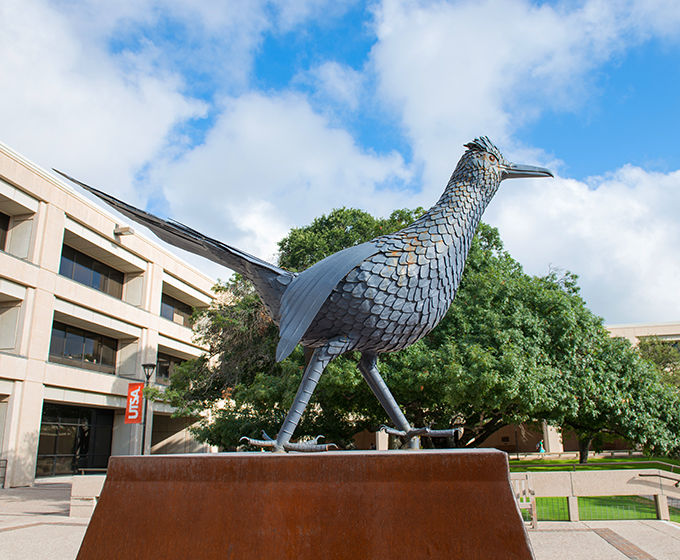
APRIL 1, 2021 — UTSA has recognized six faculty members in the College of Liberal and Fine Arts with the inaugural Researcher of the Year Award. The honor distinguishes social scientists who produce innovative research such as the impact of conservation on primate biodiversity, medical ethics in artificial intelligence, HIV health communication in marginalized communities, and the sociological context for language change.
“The 2021 COLFA Researcher of the Year Award is the college’s inaugural award that recognizes the research excellence of COLFA faculty,” said Seok Kang, COLFA’s associate dean of research. “This award will continue to honor the faculty’s research endeavors in the years to come.”
In the last year alone, COLFA academics secured 77 funded grants valued at more than $2.2 million. The Researcher of the Year award criteria includes publication of academic articles, research grants, book authorship, performances, and art works.
“We’re proud to present these six faculty members as Researchers of the Year,” said Sean Kelly, interim dean of COLFA. “They are emblematic of the excellence in research being done in the humanities, social sciences and fine arts. We’re glad to have gone through this inaugural process as it has given us the opportunity to really highlight these spectacular researchers.”
COLFA is one of UTSA’s most academically diverse colleges with about 400 faculty, many of whom are internationally recognized. The college has more than 4,600 students enrolled across nine departments encompassing the fine arts, humanities and social sciences. The college offers 33 degree programs, including doctorates in anthropology and English, a nationally recognized M.F.A., and one of the nation’s largest undergraduate programs in medical humanities.
“Researchers in COLFA are at the forefront of contributing to an understanding of universal human experiences,” Kang said. “Social sciences, humanities and liberal arts researchers including those in COLFA enable us to comprehend and interpret human interaction in varying contexts and offer solutions for pressing concerns we face in the present and future.”
The six recipients of 2021 COLFA Researcher of the Year Awards are:

Luca Pozzi
Anthropology
Pozzi’s research centers on primate biodiversity and conservation. He seeks to identify what drivers in the past can provide critical information to better interpret and predict how wild populations may respond to present and future changes.
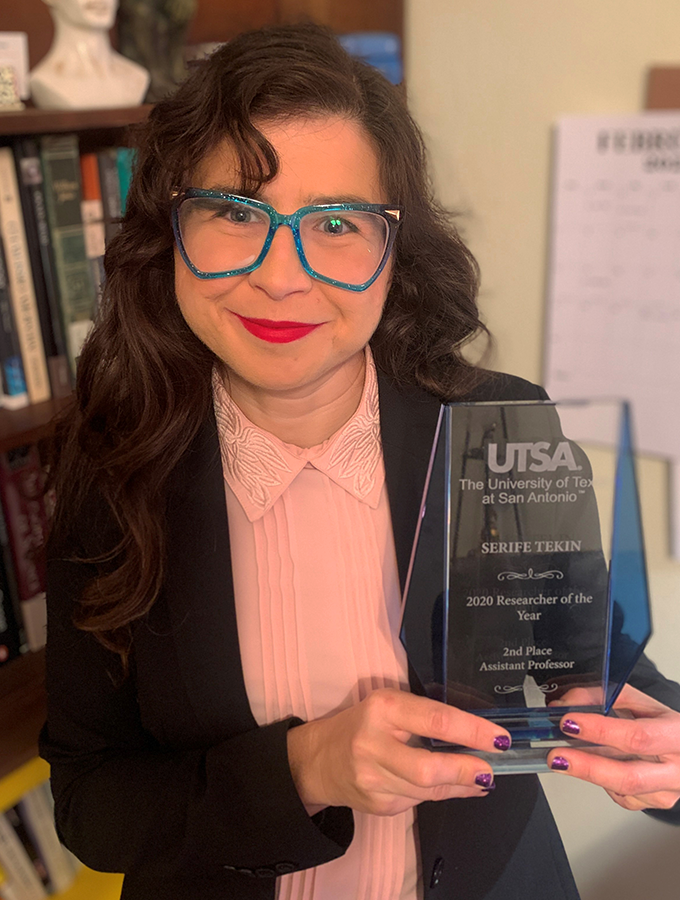
Şerife Tekin
Philosophy and Classics
The fundamental goal of Tekin’s research is to make the concept of the self central to philosophical, scientific, clinical, and ethical approaches to mental disorders. This include her recent work on the ethics of using artificial intelligence to treat mental disorders.
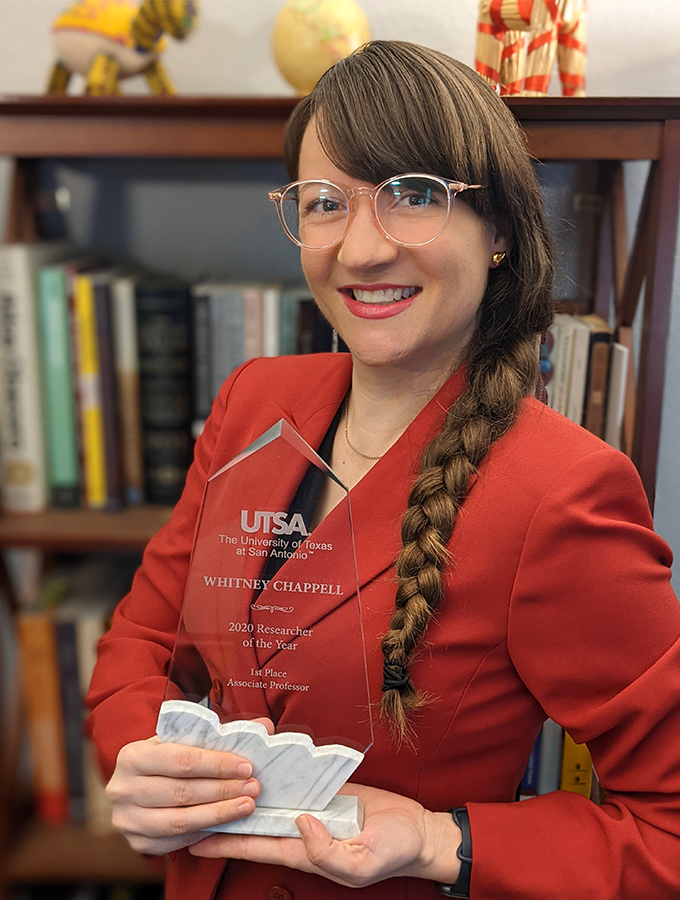
Whitney Chappell
Modern Languages and Literatures
Chappell’s research focuses on sociophonetic variation in the Spanish-speaking world, or how Spanish speakers construct social meaning through their use of contextualized linguistic variants. Her most recent projects focus on the perception of variants among monolingual and bilingual Spanish speakers.
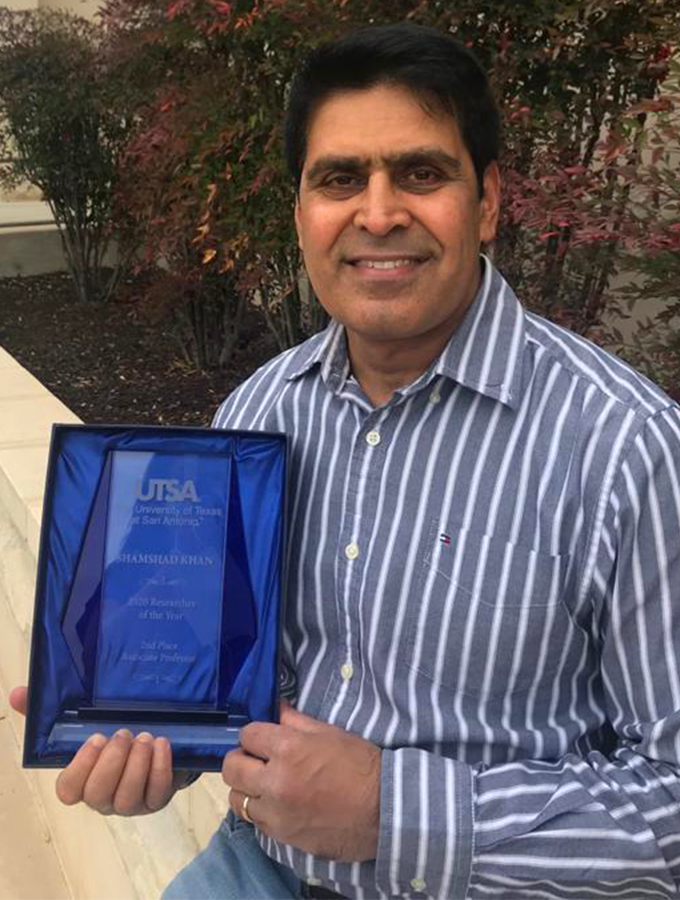
Shamshad Khan
Communication
Khan’s research is grounded in community-based health intervention and communication with a special focus on HIV/AIDS and marginalized communities. He has been involved with several global health research projects, working with scholars from India, Kenya, China and Canada.
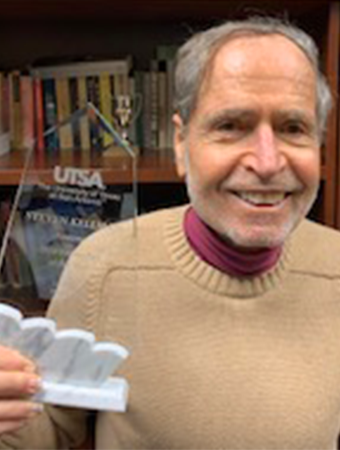
Steven G. Kellman
English
Kellman is widely credited for pioneering the study of “translingualism,” the literary phenomenon of writers who pen their works in an acquired language. He recently published the book Rambling Prose, Nimble Tongues: Studies in Literary Translingualism.
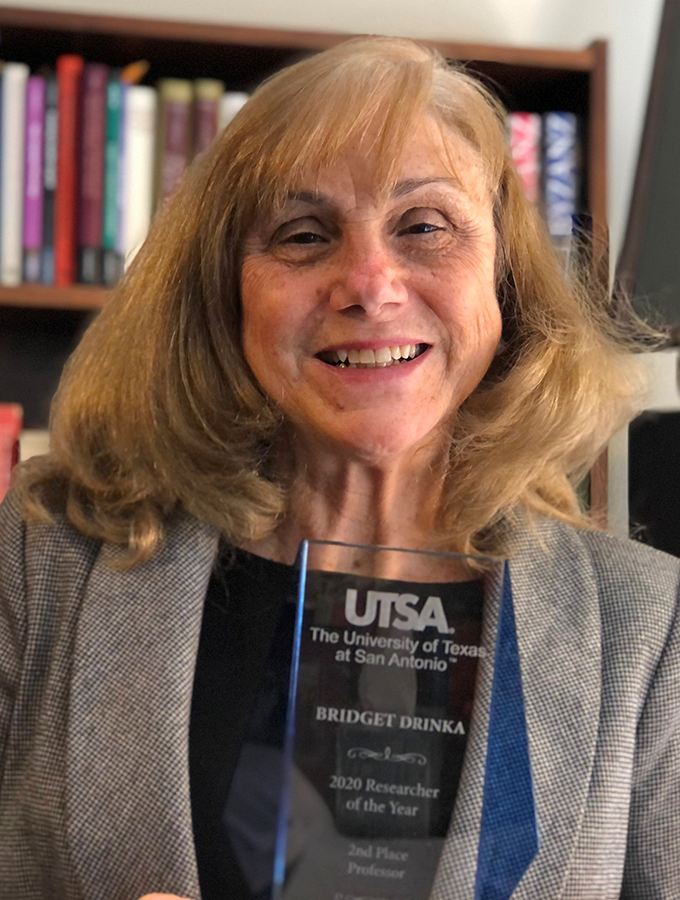
Bridget Drinka
English
As a member of UTSA’s faculty since 1991, Drinka’s research has been rooted in such issues as the sociolinguistic motivations for language change, the role of contact in linguistic innovation, and the importance of geographical contiguity in the diffusion of changes across the Indo-European languages.
UTSA Today is produced by University Communications and Marketing, the official news source of The University of Texas at San Antonio. Send your feedback to news@utsa.edu. Keep up-to-date on UTSA news by visiting UTSA Today. Connect with UTSA online at Facebook, Twitter, Youtube and Instagram.
Move In To COLFA is strongly recommended for new students in COLFA. It gives you the chance to learn about the Student Success Center, campus resources and meet new friends!
Academic Classroom: Lecture Hall (MH 2.01.10,) McKinney Humanities BldgWe invite you to join us for Birds Up! Downtown, an exciting welcome back event designed to connect students with the different departments at the Downtown Campus. Students will have the opportunity to learn about some of the departments on campus, gain access to different resources, and collect some giveaways!
Bill Miller PlazaCome and celebrate this year's homecoming at the Downtown Campus with food, games, giveaways, music, and more. We look forward to seeing your Roadrunner Spirit!
Bill Miller PlazaThe University of Texas at San Antonio is dedicated to the advancement of knowledge through research and discovery, teaching and learning, community engagement and public service. As an institution of access and excellence, UTSA embraces multicultural traditions and serves as a center for intellectual and creative resources as well as a catalyst for socioeconomic development and the commercialization of intellectual property - for Texas, the nation and the world.
To be a premier public research university, providing access to educational excellence and preparing citizen leaders for the global environment.
We encourage an environment of dialogue and discovery, where integrity, excellence, respect, collaboration and innovation are fostered.